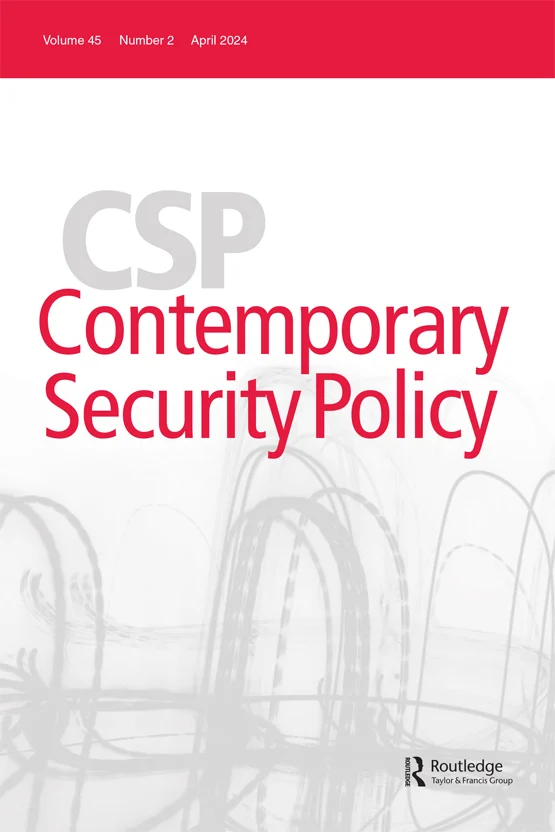支持禁止杀人机器人的预测因素:预防性军备控制作为对军事创新的预期反应
IF 5
1区 社会学
Q1 INTERNATIONAL RELATIONS
引用次数: 4
摘要
摘要许多人将致命自主武器系统的出现视为军事领域的下一次革命。目前,大约有30个国家同意应该先发制人地禁止这些武器,但我们对它们的动机知之甚少。这项研究通过将预防性军备控制理论化为对军事创新的预期反应,为越来越多的关于“杀手机器人”的文献做出了贡献。我建议,当各国首先缺乏追求创新的能力或动机时,它们更喜欢预防性军备控制。我分析了一个关于各国对禁止自主武器立场的横断面数据集,并表明支持预防性禁止的可能性随着财政和技术能力的提高而降低。与混合政权相比,民主政体和独裁政体都不太可能支持这项禁令。相反,在特定军备控制制度下具有强烈人道主义倾向和高度社会化的国家更有可能支持这项禁令。本文章由计算机程序翻译,如有差异,请以英文原文为准。
Predictors of support for a ban on killer robots: Preventive arms control as an anticipatory response to military innovation
ABSTRACT Many see the advent of lethal autonomous weapon systems as the next revolution in military affairs. Currently, some 30 countries share the view that these weapons should be preemptively banned, but we know relatively little about their motivations. This study contributes to the growing literature on “killer robots” by theorizing preventive arms control as an anticipatory response to military innovation. I suggest that states prefer preventive arms control when they lack capacities or incentives to pursue innovation in the first place. I analyze a cross-sectional dataset on national positions toward the ban on autonomous weapons and demonstrate that the probability of support for preventive prohibition decreases with increasing financial and technological capacities. Both democracies and autocracies are less likely to support the ban than mixed regimes. Conversely, states with strong humanitarian orientation and high socialization within specific arms control regimes are more likely to support the ban.
求助全文
通过发布文献求助,成功后即可免费获取论文全文。
去求助
来源期刊

Contemporary Security Policy
Multiple-
CiteScore
14.60
自引率
6.80%
发文量
22
期刊介绍:
One of the oldest peer-reviewed journals in international conflict and security, Contemporary Security Policy promotes theoretically-based research on policy problems of armed conflict, intervention and conflict resolution. Since it first appeared in 1980, CSP has established its unique place as a meeting ground for research at the nexus of theory and policy.
Spanning the gap between academic and policy approaches, CSP offers policy analysts a place to pursue fundamental issues, and academic writers a venue for addressing policy. Major fields of concern include:
War and armed conflict
Peacekeeping
Conflict resolution
Arms control and disarmament
Defense policy
Strategic culture
International institutions.
CSP is committed to a broad range of intellectual perspectives. Articles promote new analytical approaches, iconoclastic interpretations and previously overlooked perspectives. Its pages encourage novel contributions and outlooks, not particular methodologies or policy goals. Its geographical scope is worldwide and includes security challenges in Europe, Africa, the Middle-East and Asia. Authors are encouraged to examine established priorities in innovative ways and to apply traditional methods to new problems.
 求助内容:
求助内容: 应助结果提醒方式:
应助结果提醒方式:


